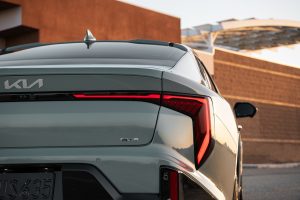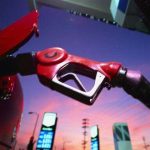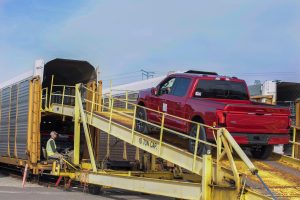A recall ordered by Ford to address gasoline leaks involving 43,000 Ford Bronco Sport And Escape SUVs has come under scrutiny. Federal regulators say they have “significant safety concerns” about whether the repairs will fix the problem and prevent possible vehicle fires.
The National Highway Traffic Safety Administration’s Office of Defects Investigation wants new data from Ford in response to a March 8 recall of two compact SUVs equipped with 1.5-liter engines. Faulty fuel injectors have been blamed for gasoline leaks that could cause fires.
The recall has generated significant concern as Ford doesn’t plan to replace the defective parts but instead has come up with a repair that drains gasoline away from the vehicles. But that could still lead to fires, especially if fuel is spilled in a confined space, such as a garage.
The defect
Te recall announced on March 8 covers 43,000 vehicles. That includes Ford Escape SUVs from the 2022 model year, as well as Bronco Sport SUVs from 2022 and 2023. The two vehicles share the same, basic underpinnings, including a 1.5-liter inline-4 gas engine.

The two SUVs were involved in an earlier recall covering more than 400,000 vehicles due to potential engine fires.
According to documents gathered by NHTSA, the fuel injectors used in that engine can crack, resulting in the leakage of fuel and vapors which could then ignite under certain conditions.
According to the automaker, only about 1% of the vehicles covered by the recall are likely to actually experience the problem. Records so far show five under-hood fires, though there have been no reports of crashes or injuries. Another 14 vehicles have had their fuel injectors replaced under warranty.
The proposed fix
On April 25, NHTSA wrote to Ford addressing its concerns and asking for what the Associated Press has described as “volumes of information” regarding the repairs the automaker is undertaking.
The controversy centers around the fix the automaker has developed. Instead of replacing the potentially faulty injectors, Ford dealers will install a tube that can channel fuel away from the engine and drop to the ground.
Ford is also updating the engine control software on those vehicles. In the event an injector cracks it will result in a loss of pressure in the fuel system. In turn, that will disable the high pressure fuel pump, lowering engine power and reducing temperatures in the engine compartment, Ford stated. That, it said in a statement issued at the time of the recall, “will prevent the failure from occurring and protect the customer.”
If a failure is detected, added Ford, a dashboard warning light will advise motorists who are then expected to drive to a safe location and then call to schedule repairs.
More Recall News
- Honda Facing Potential Recall of 2 Million Vehicles; Toyota Recalls New Prius
- Ford Recalls 2 Million Explorers for Parts that can Fly Off
- Faulty Airbags Force Recall of 285,000 Dodge, Chrysler Vehicles
Now what?

The 2021 Ford Expedition (shown here) and Lincoln Navigator faced another recall due to potential engine fires.
In its 11-page letter, NHTSA asked Ford to detail the testing it has done to ensure that the planned fix will not create new problems, such as causing fires were fuel to leak onto the ground. It wants to understand why the automaker isn’t simply replacing the fuel injectors in vehicles covered by the service action.
Regulators want to hear Ford’s view of “its obligations (legal, ethical, environmental and other) to prevent and/or limit fuel leakage onto the roadway at any point during a vehicle’s lifespan.”
This is the second time the Bronco Sport and Escape SUVs have been recalled for this problem. The initial action covered 522,000 of those two models.
Ford has experienced several fire-related recalls in recent years. One, announced in 2022, involved thousands of Ford Expedition and Lincoln Navigator SUVs. In that case, the automaker advised owners to park their vehicles outside and away from buildings until repairs could be made. In the latest recall, however, Ford did not issue such an advisory.









0 Comments